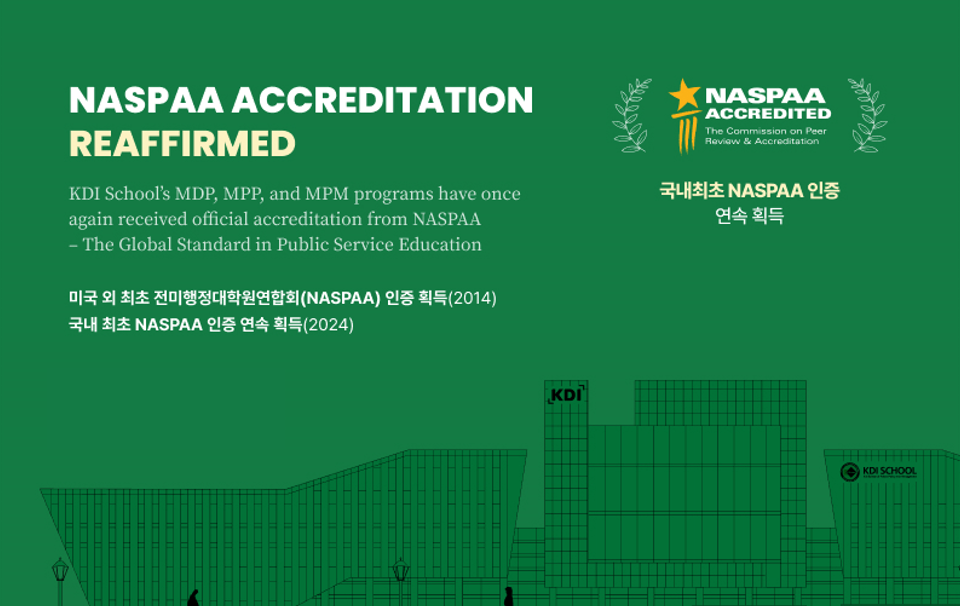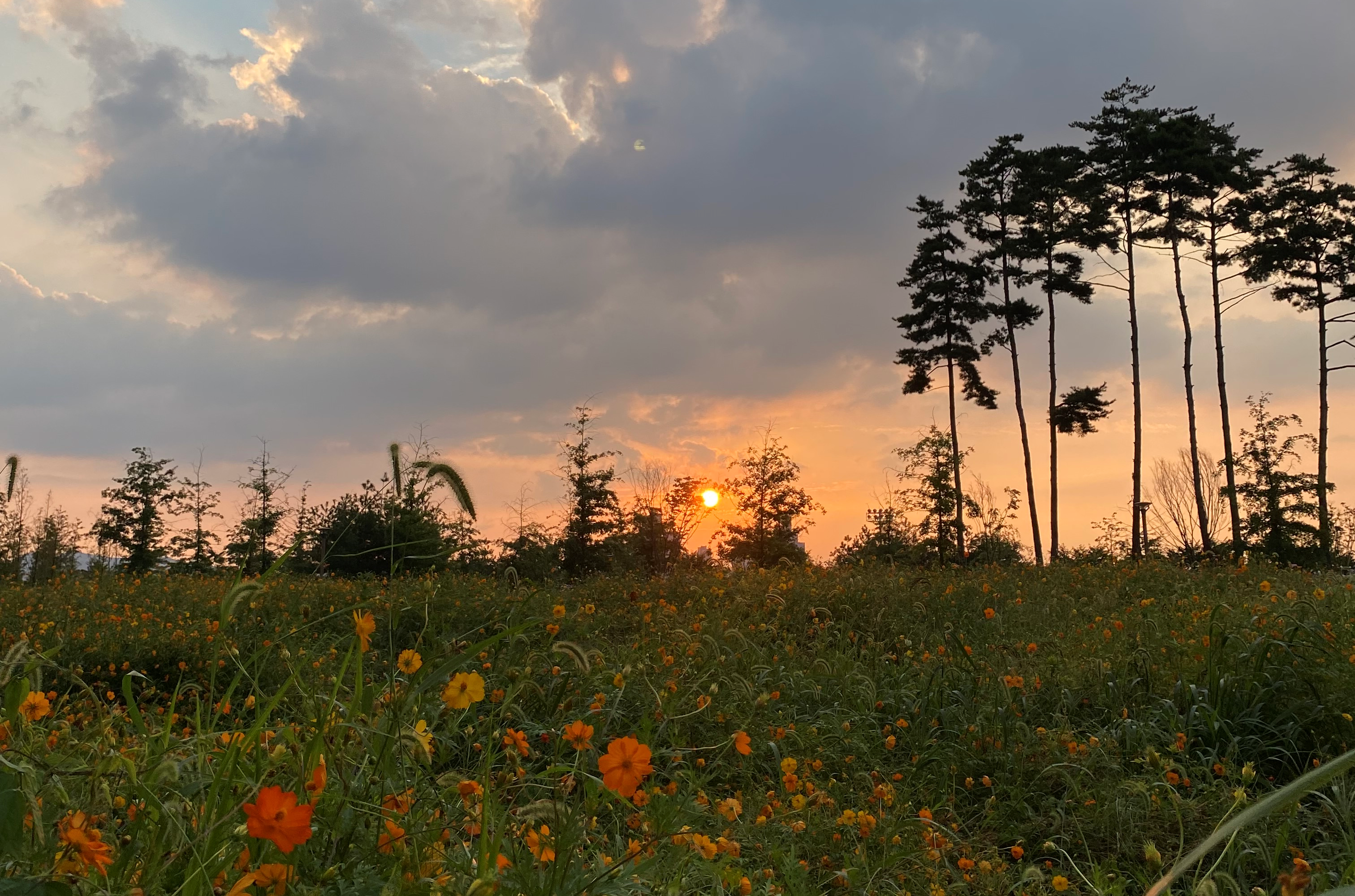
KDIS Alumni Come Together for Saemaul Geumgo Project in Laos
- Date 2024-01-24 09:00
- CategoryStory
- Hit1850
KDIS prides itself on its global alumni network, and this is not without reasons. The school has a diverse community that connects students from diverse backgrounds, and this leads to exciting international collaborations between alumni even years after graduating.
One such case is the two KDIS alumni uniting for the Saemaul Geumgo Project in Laos. Mr. Woo Jong Sim (2011 MDP) and Ms. Alouna Simmalavong (2018 MPM) are working together on the Laos Saemaul Geumgo Project that is advancing towards a digital transformation.
Saemaul Geumgo is Korea's unique financial inclusion model for working-class people that was introduced in the l960s and l970s to solve the problem of financial exclusion in Korea. Through the Saemaul Geumgo ODA Project, Korea is effectively contributing to reducing poverty and sustainably improving the financial aspect of development in developing countries. It is currently successfully underway in Myanmar, Uganda, Laos, and Fiji, and according to Mr. Sim, there are expansion plans in other countries too.
Here, we explored their collaboration journey, the Saemaul Geumgo Project, and their plans through an interview with Mr. Woo Jong Sim and Ms. Alouna Simmalavong.
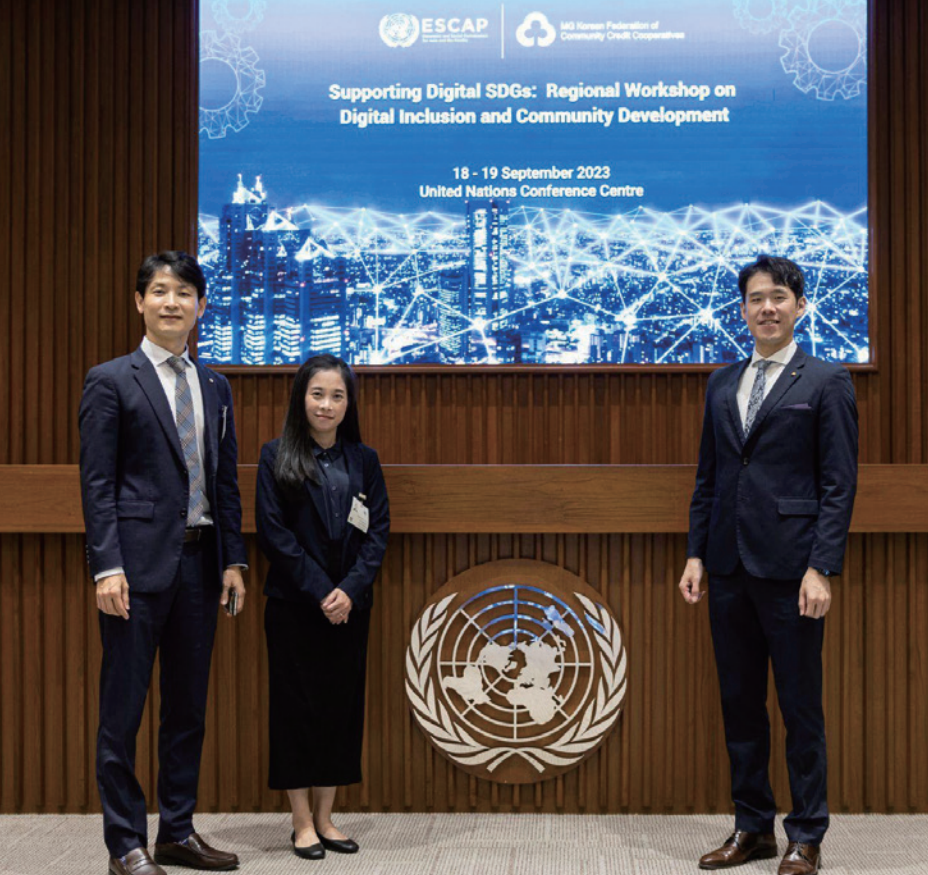
Please briefly introduce yourself and your involvement with the Saemaul Geumgo Project.
W: Hello, I am Woo Jong Sim, currently serving as the Director of the International Development Cooperation Team at KFCC. My journey toward the SMG Project started during my graduate studies at KDIS, where I did a thesis proposing SMG as an ODA Project addressing the limitations of the Grameen Bank Model for a sustainable financial ODA. I was concurrently preparing for the implementation of this project, which first start started in Myanmar in 2016, while researching my thesis. It has since gained recognition from various sectors, including the Presidential Award on the Day of the International Development Cooperation Celebration in 2021.
A: Hello, I’m Alouna Simmalavong, currently serving as the Deputy Director within the Digital Technology Department at the Ministry of Technology and Communication (MTC) of Laos and an alumnus of KDIS. My engagement with the SMG started in early 2023 when I had an opportunity to participate in its digital inclusive finance project in Laos.
We were very excited to hear about the collaboration story of two of our KDIS alumni in the SMG Project in Laos.
Please tell us a little bit about the SMG Project in Laos and what facilitated the collaboration for the project.
W: We started the SMG project in Laos in 2018. Currently, we have five Saemaul Geumgos operating in Laos. Initially, our focus was on Phase 1, which involved setting up and operating the Geumgos (Community Credit Cooperatives) and now, we are transitioning to Phase 2, which emphasizes their digital transformation. To successfully execute this transformation, we needed to collaborate with relevant ICT government bodies in Laos. We were Looking for a potential contact point with the Ministry of Technology and Communication (MTC) of Laos for the same. I turned to the KDIS Alumni network and the school’s online information platform to find this connection. This eventually Led us to connect with Ms. Alouna.
A: The opportunity arose thanks to the collaboration between the Open Government & Innovation Lab in KDIS, the Ministry of Public Administration and Security, and SMG. I was reached out to by Mr. Sim through Professor Lee Tae Jun and was invited to a capacity-building workshop in Korea. I participated in the workshop along with government officials from Laos, digital experts, business leaders and village representatives of SMG to learn from the exemplary cases in South Korea. This collaborative workshop allowed us to formulate a strategy for the digital transformation of the SMGs in Laos. Subsequently, we submitted a project concept paper to KOICA, which has already initiated a proof- of-concept phase in September (2023).
Could you provide some insights about the upcoming initiatives related to the SMG project?
W: Certainly! We have an upcoming project in Nepal in collaboration with KOICA. We originally adhered to invitational training with limited invited trainees from the recipient countries to Korea, but in the case of the Nepal project, the emphasis will be on educating and training Nepalese migrant workers already residing in Korea and empowering them to lead village savings organizations in Nepalese villages. Besides this upcoming project, our strategic plan includes digital transformation of the existing projects through our macro-level approach using digital technology or ICT. This initiative aligns with our goals and also contributes to achieving SDGs Like No Poverty, No Hunger, Quality Education, and even Gender Equality.
A: The ongoing ODA project is currently focused on developing basic digital devices and systems for Saemaul Geumgo branches in Laos villages and implementing them into their operations. The partnership of the Korean government, Saemaul Geumgo, and KDI School has helped the Laotian government gain vision and confidence for the gradual realization of digital inclusive finance development. Though challenges persist, I believe these collaborative efforts will contribute to economic growth, quality of Life, and a regional innovation ecosystem in Laos.
Now, let’s talk about your experience with KDIS. How was it? How was your experience at KDIS helpful in realizing your interests and achieving the results you wanted?
W: I’d have to Look back ten years if I think about my time at KDIS. KDIS was in Seoul, not Sejong City. I was a part-time student then. I often visited the campus with Lush trees during weekends to relax, read, or contemplate when I had no business at school. So, when I heard KDIS was moving to Sejong, I felt somewhat sad, as I Lost my weekend retreat. One major strength of KDIS is the presence of renowned professors who share their knowledge in diverse academic fields. The learning opportunity from them and attending classes alongside students from various countries was a valuable experience. The interactions with fellow students proved helpful for my project development. I'd share my project ideas with them and get their constructive feedback. It allowed me to conduct pilot tests on my concepts, fostering a sense of feasibility.
A: My time at KDIS was transformative, especially in shaping my perspective on technology for development. Courses Like "Digital Government and Governance" inspired me to contemplate the need to build a digital financial platform for development in Laos, a concept solidified in my Supervised Research Project (SRP). Recently, in September, I got to present the case of digital inclusive finance in Laos at the UN ESCAP workshop, which made me realize the applicability of the experience and knowledge gained at KDIS not only in my home country but also at the international Level.
What advice would you give to the current KDI School students who aspire to make a positive social impact like you? How can they leverage the KDI School alumni network for similar opportunities?
W: For current KDI School students, I recommend approaching your time at the school with a mindset focused on execution. While attending classes and writing academic papers are important, I recommend viewing these activities as stepping stones toward real-world projects. In my case, I used my master’s thesis as a foundation for a tangible project. This practical application of theory to practice is uncommon but also possible. So, understanding the practicality of your research and how it can lead to meaningful real-world outcomes is very rewarding. Also, take advantage of the diverse community in the school and expand your network during your time at school Leveraging this network can open doors to many opportunities and enable you to make a real impact.
Related News
-
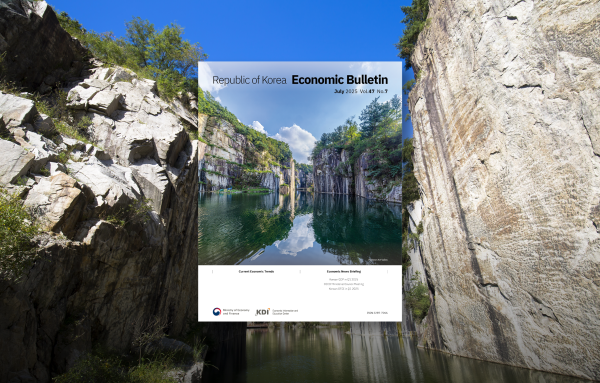
Research and Education15 days ago
Republic of Korea Economic Bulletin, July 2025#KDI #Economic #KDISCHOOL #kdischool #Economic Bulletin #Research
-
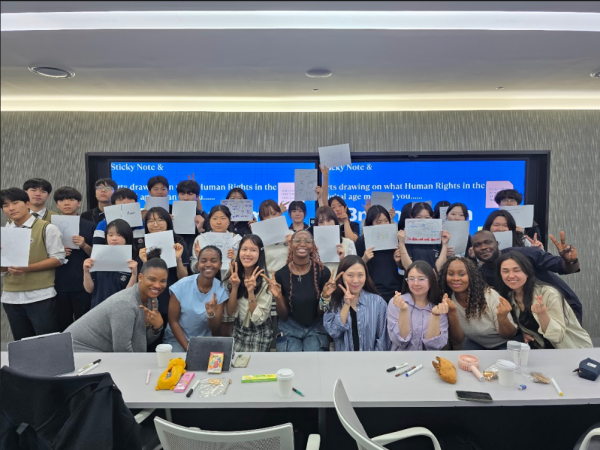
Story18 days ago
Summer 2025 Talent Donation Program: KDIS Forums Host Sejong High School Students#KDISCHOOL #KDIS #student #talent donation #student forums #student clubs
-
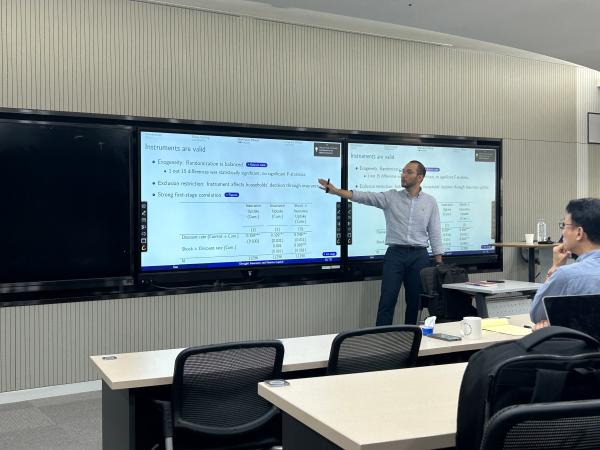
Research and Education19 days ago
Research Seminar by Hyuk Harry Son from Utrecht University

